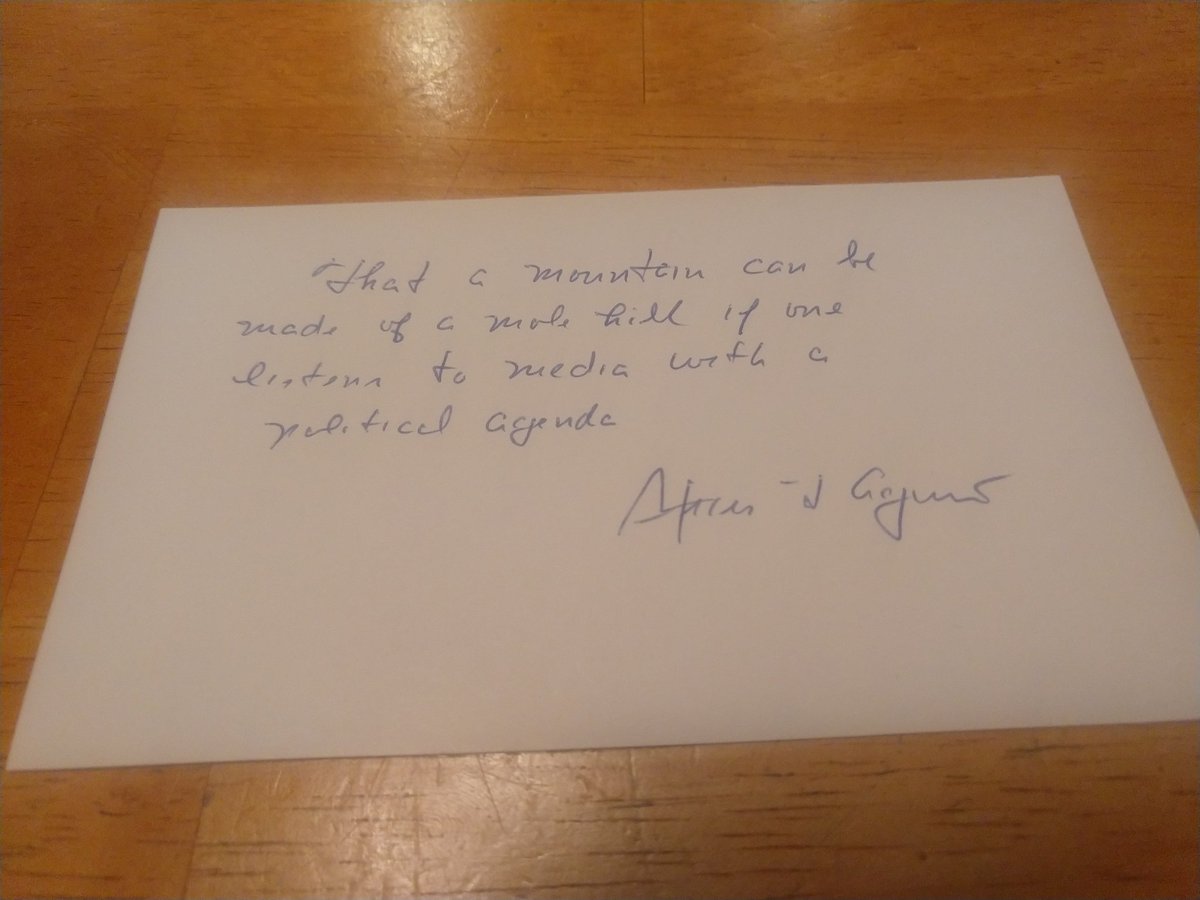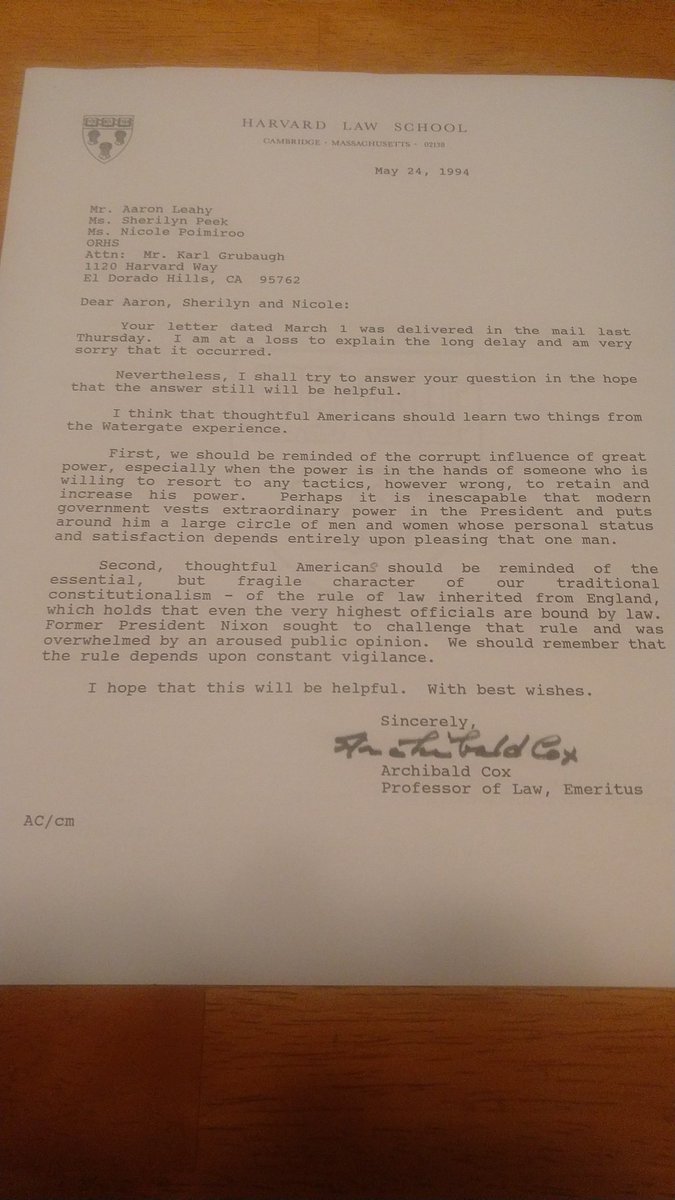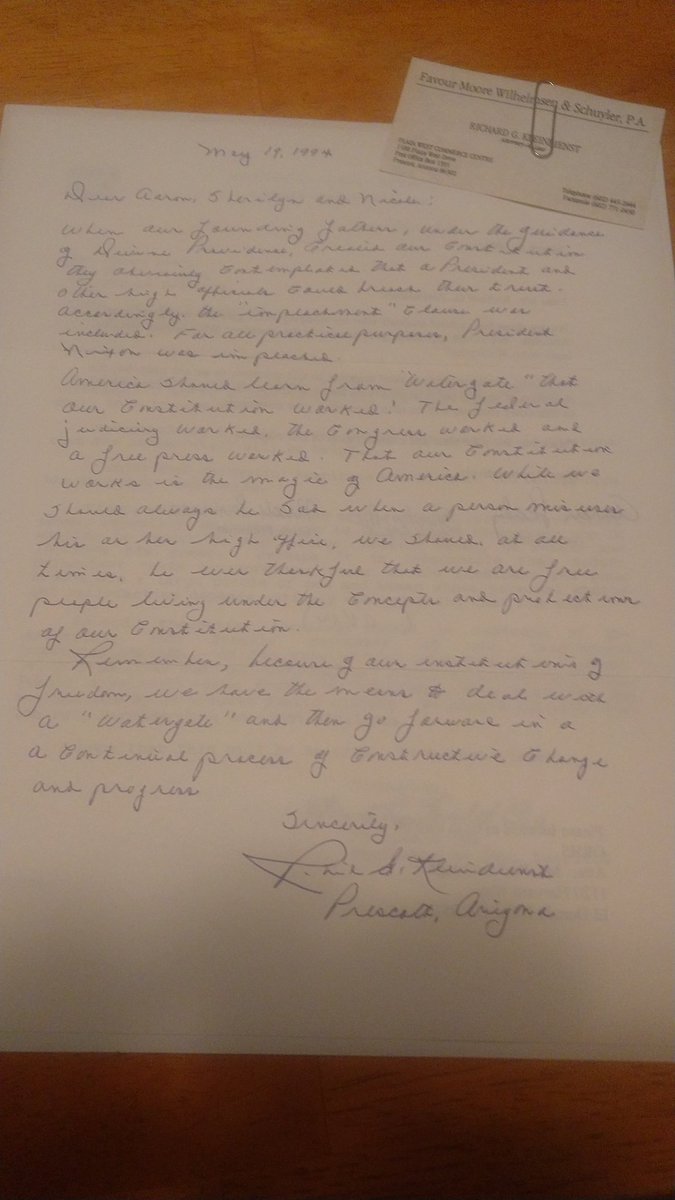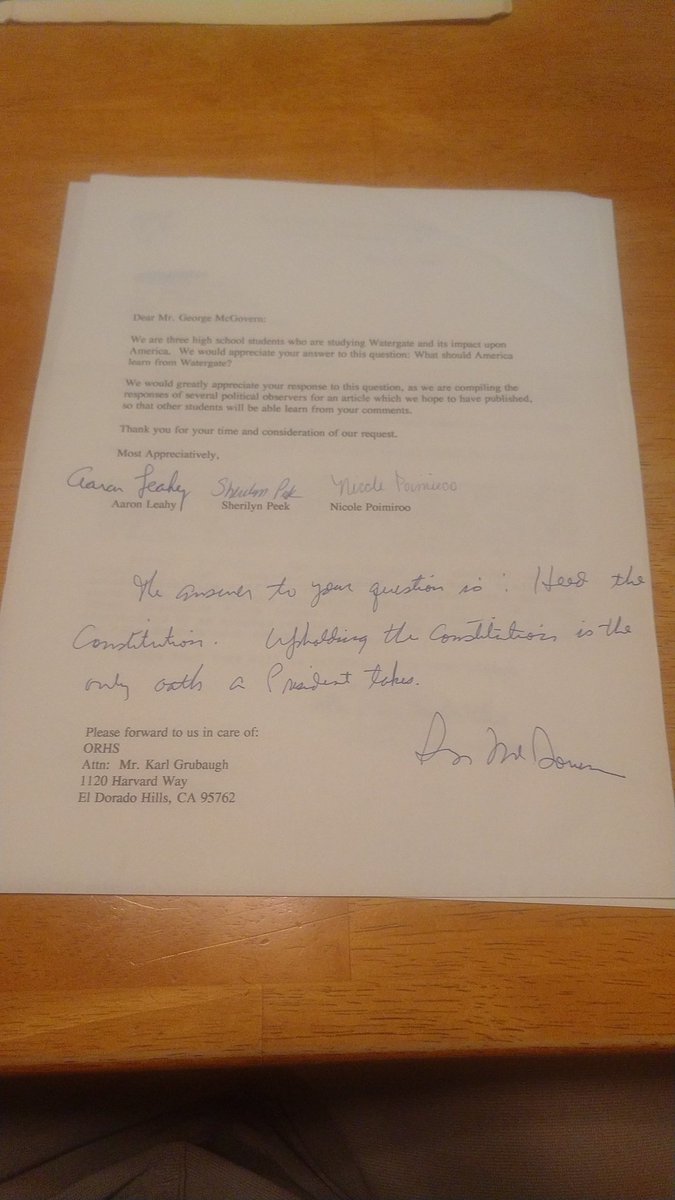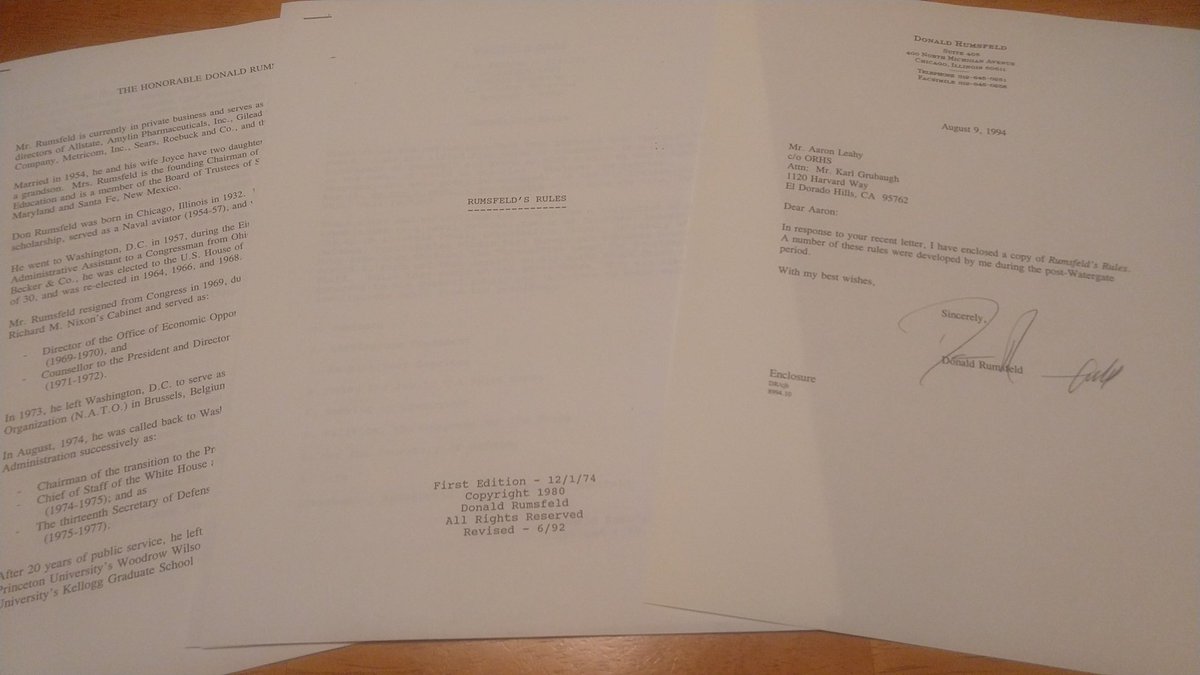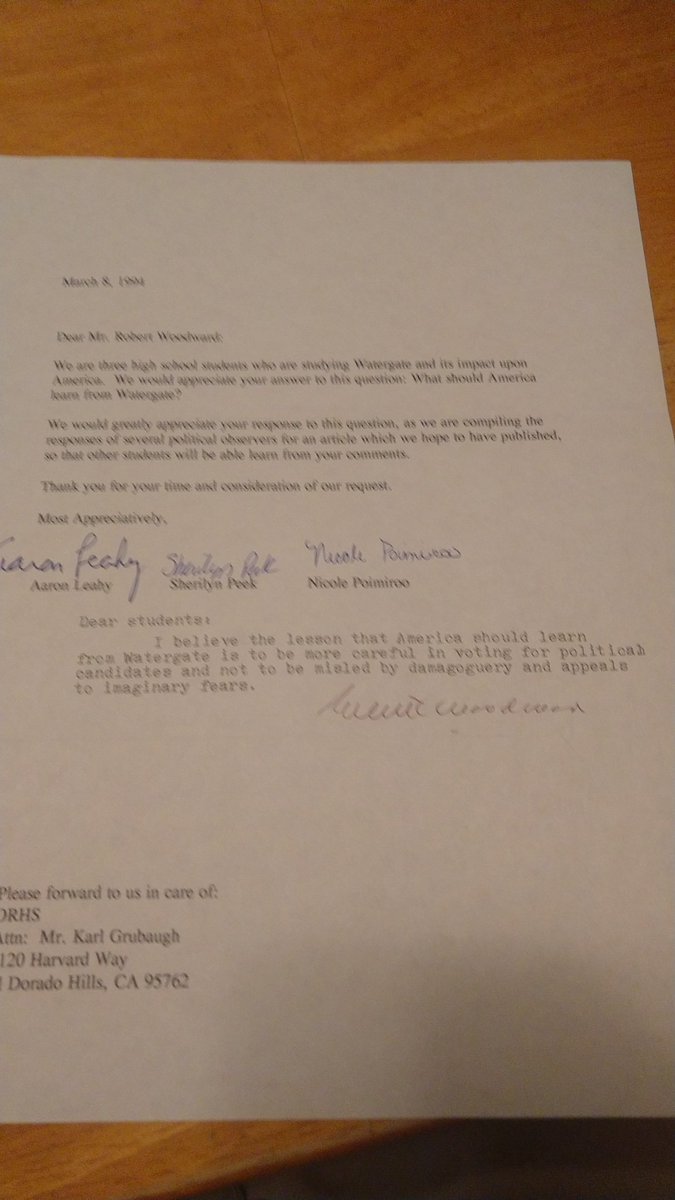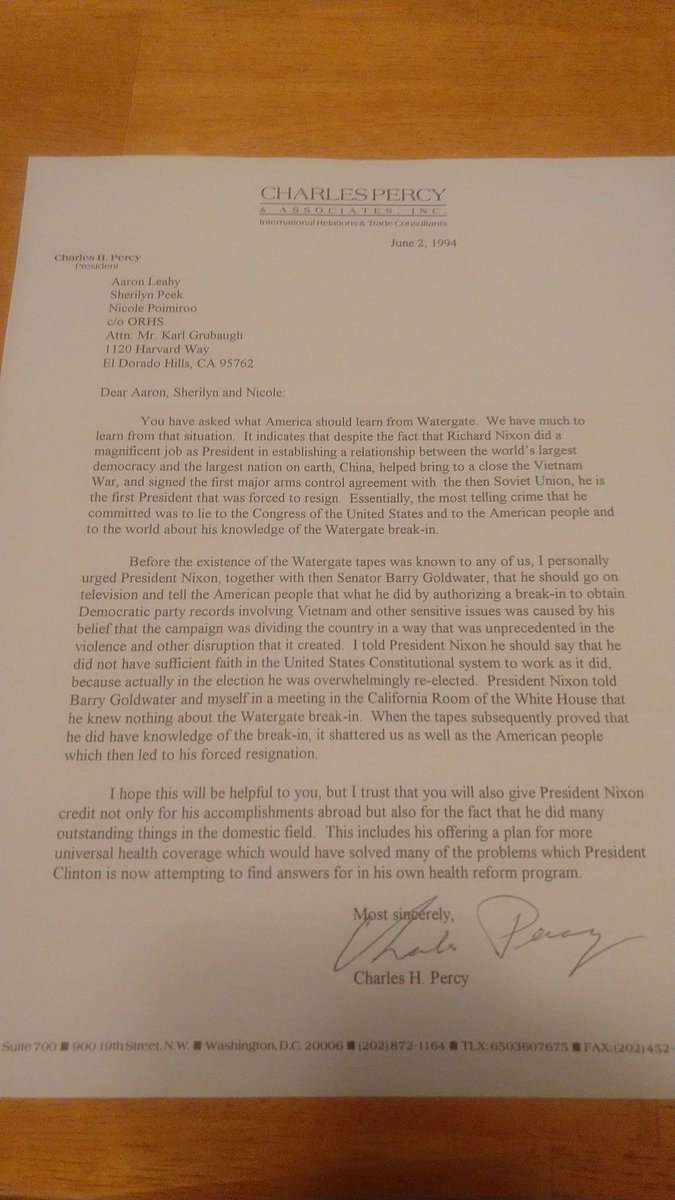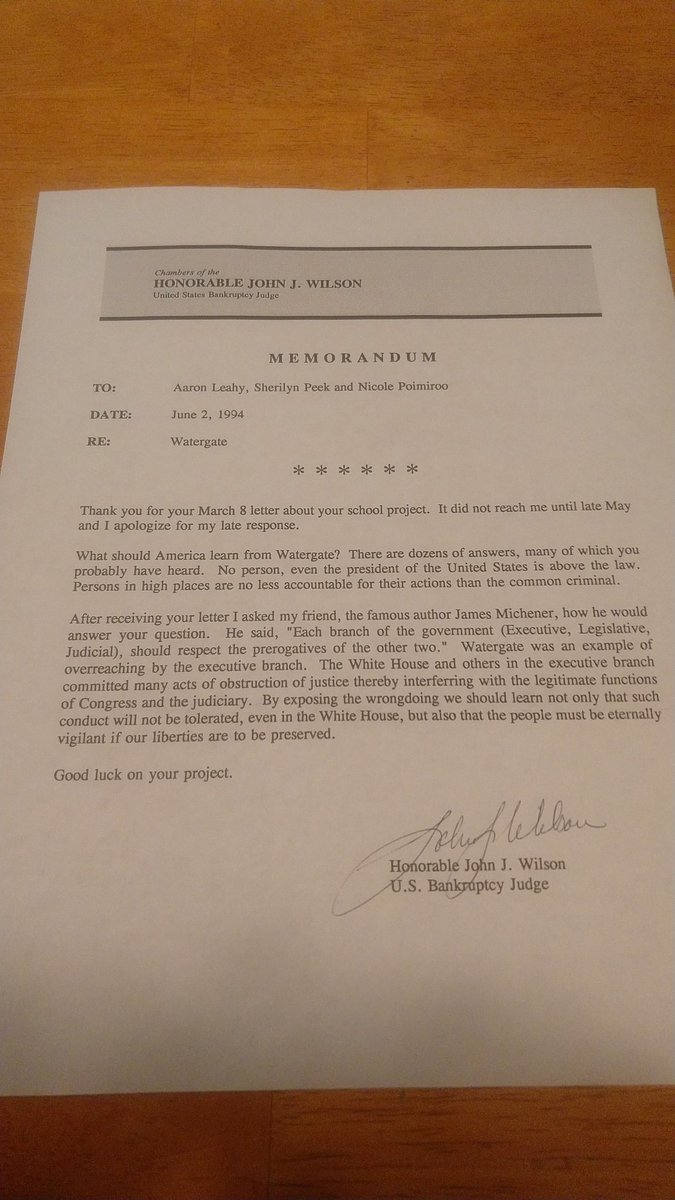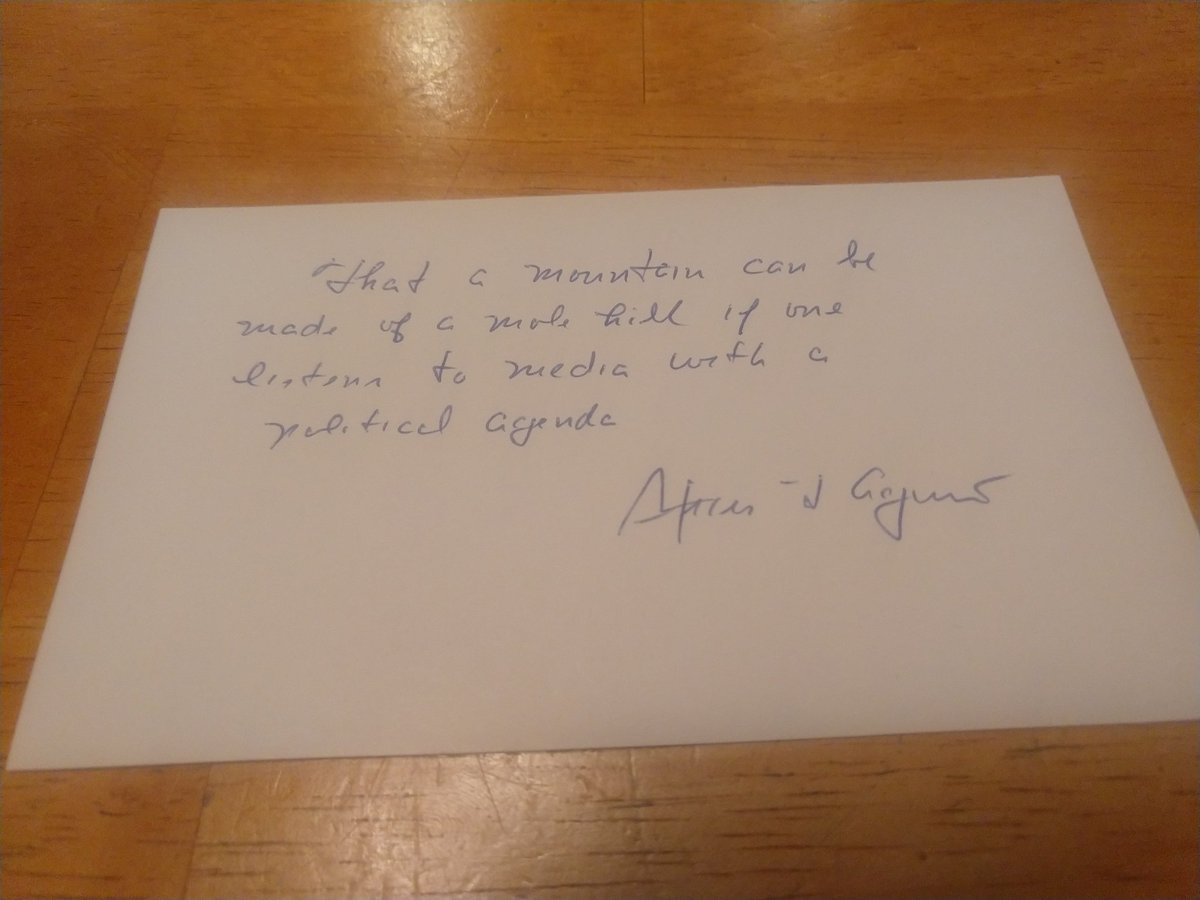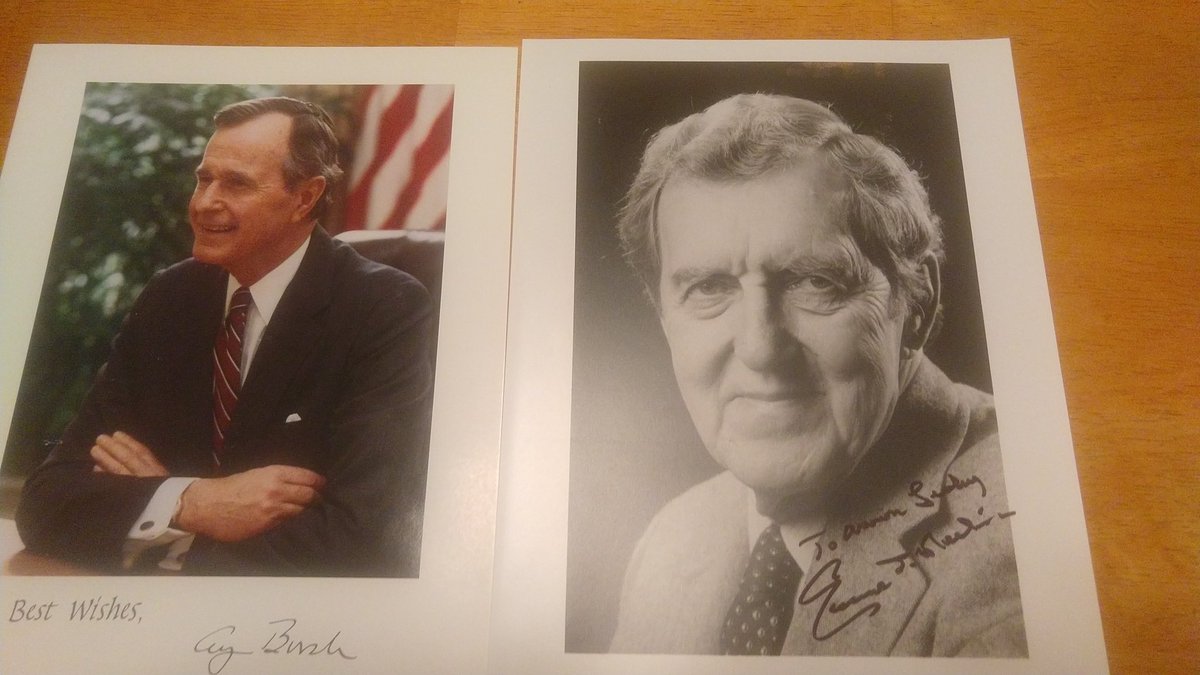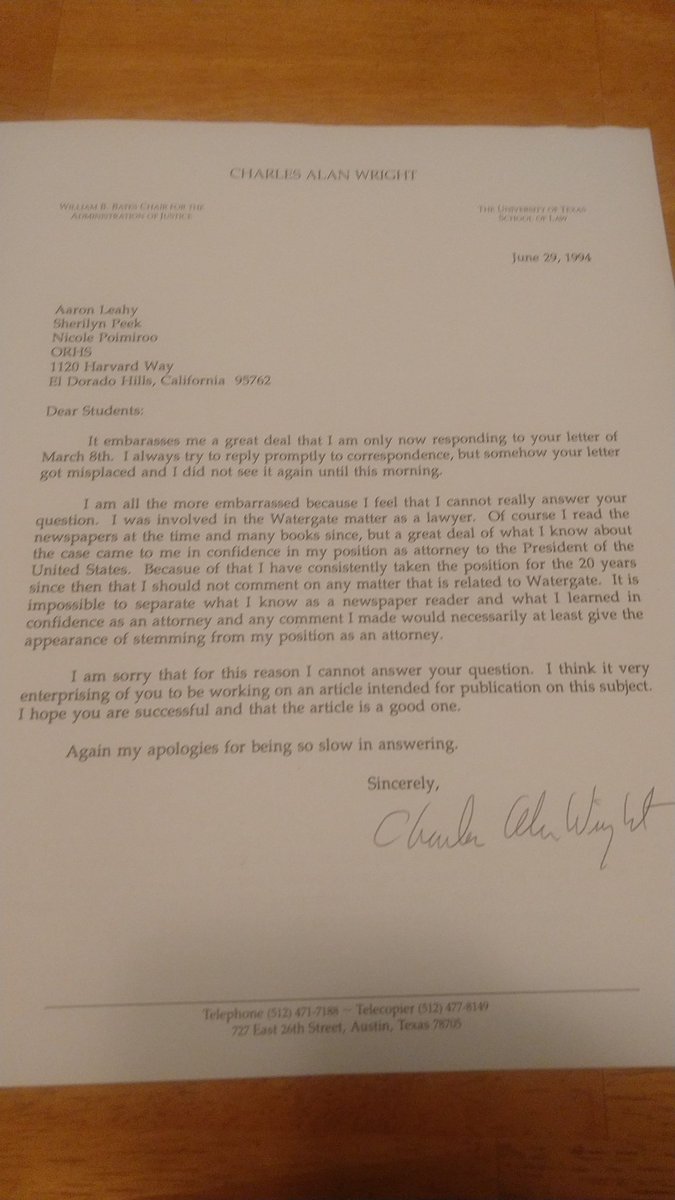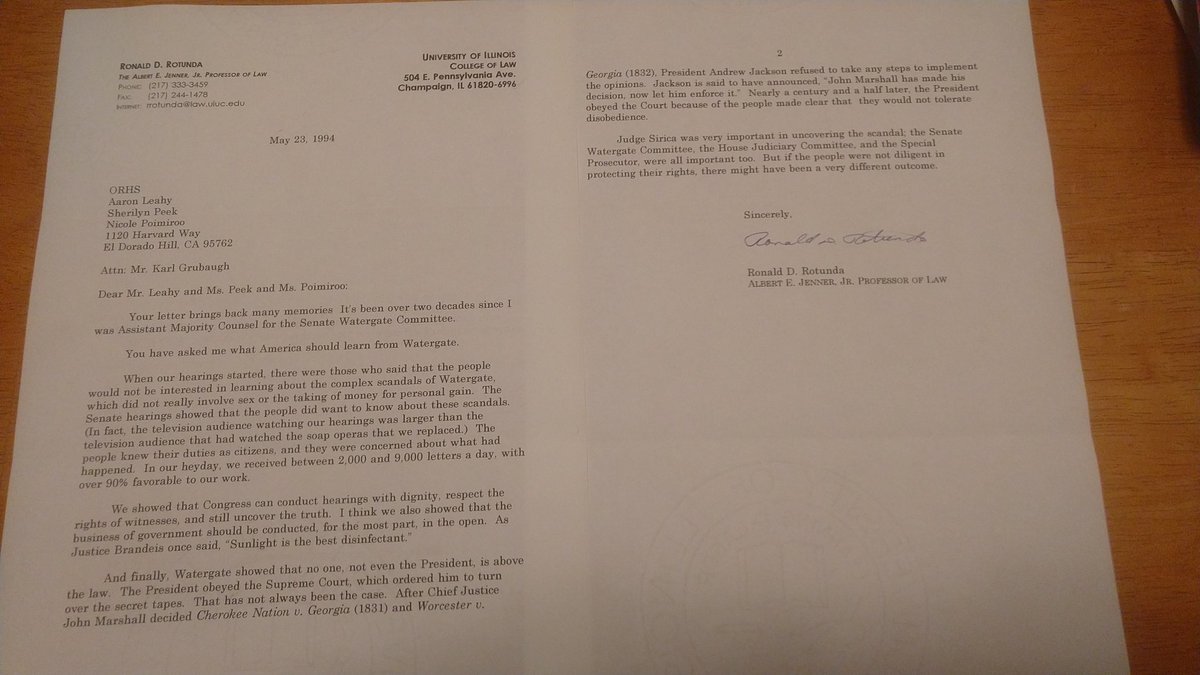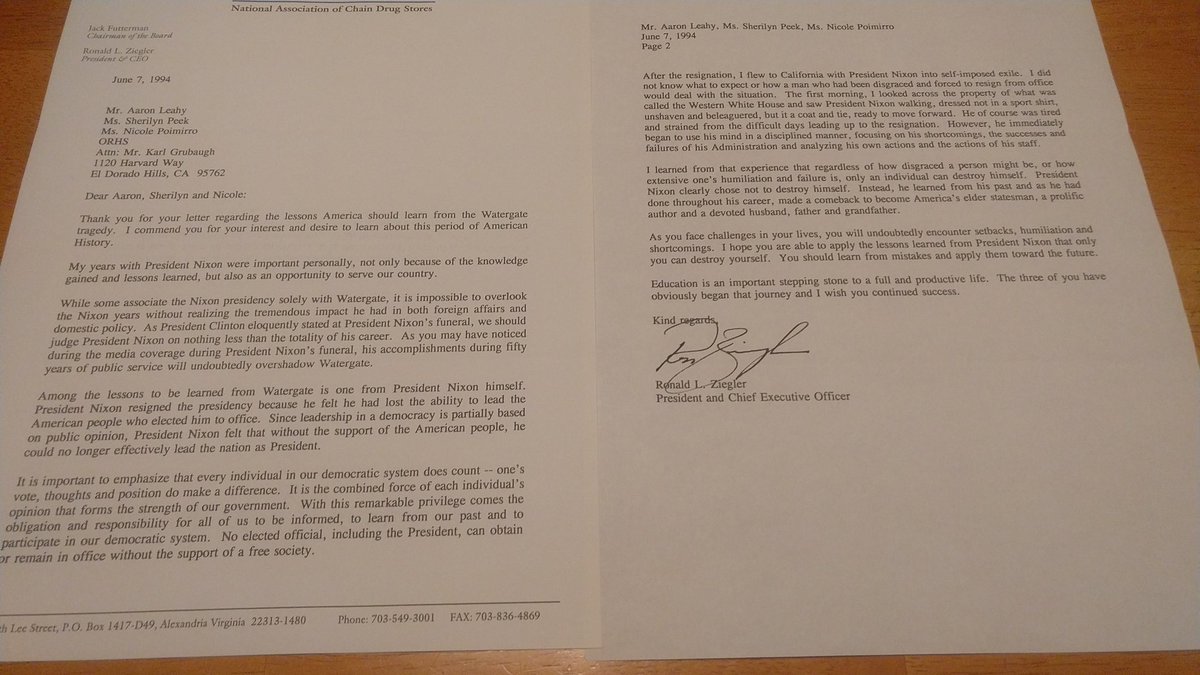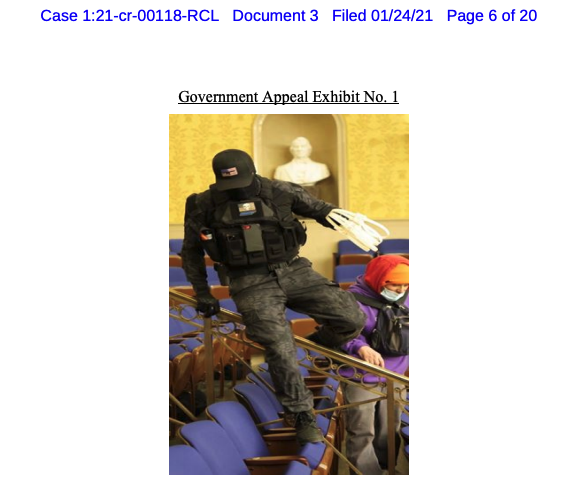my students -- Sherilyn Peek, Aaron Leahy and Nicole Poimiroo -- take on an extra project. They contacted dozens of people who were in some way involved with the Watergate saga. Politicians, lawyers, political appointees, journalists and others. 2/
They spent weeks, before the internet existed, tracking down addresses. Then they sent a short letter that asked the recipients to respond to one question: What should America learn from Watergate?
Before long, responses started to show up in my mailbox at school. 3/
Archibald Cox replied, and I'm especially struck by this sentence: "...we should be reminded of the corrupt influence of great power, especially when the power is in the hands of someone who is willing to resort to any tactics, however wrong, to retain and increase his power."4/
Richard Kleindienst wrote his response by hand ... "Our Constitution worked! The federal judiciary worked. The Congress and a free press worked. That our Constitution works is the magic of America." 5/
Sen. George McGovern, the former Democratic presidential candidate who ran against Nixon in 1972, also wrote his short response by hand: "Heed the Constitution. Upholding the Constitution is the only oath a President takes." 6/
George H.W. Bush and Edmund Muskie sent signed photos without a written response. 7/
Donald Rumsfeld sent a bio and a copyrighted copy of reflections on his public service through 1980, a document he titled "Rumsfeld's Rules." Charles Colson sent a copy of a piece he wrote for Christianity Today, "My Journey from Watergate." 8/
Bob Woodward: "I believe the lesson that America should learn from Watergate is to be more careful in voting for political candidates and not to be misled by damagoguery (sic) and appeals to imaginary fears. " 9/
Former Congressman Pete McCloskey offered to meet with my students. U.S. District Judge Lee Gagliardi politely declined, citing his policy of not commenting on trials. (He didn't say which trial -- not Nixon's, of course, because there never was an impeachment trial.) 10/
Charles Wright, an attorney to Nixon, also declined to comment. 11/
Former Illinois Senator Charles Percy said he and Sen. Barry Goldwater of Arizona were assured by Nixon that "he knew nothing of the Watergate break-in. When the tapes subsequently proved that he did have knowledge of the break-in, it shattered us ... " 12/
John Wilson, who defended Bob Haldeman and John Erlichman and later became a judge, let his friend and author James Michner help answer the question and then concluded with this: "... The people must be eternally vigilant if our liberties are to be preserved." 13/
Ron Rotunda was assistant majority counsel for the Senate Watergate Committee ... 14/
The longest response came from Ron Ziegler, Nixon's former press secretary who worked for Nixon in San Clemente after the resignation before eventually becoming president and CEO of the National Association of Chain Drug Stores. 15/
He pumped up Nixon's accomplishments, attributed Nixon's resignation to having "lost the ability to lead," and then offered this partisan conclusion: "I learned from that experience that regardless of how disgraced a person might be, or how extensive ... " 16/
"... one's humiliation and failure is, only an individual can destroy himself. President Nixon clearly chose not to destroy himself. Instead, he learned from his past and as he had done throughout his career, made a comeback to become America's elder statesman ..." 17/
" ... a prolific author and a devoted husband, father and grandfather." /18
After the semester ended, and Sherilyn, Aaron and Nicole graduated, I put all these letters in a file. The goal had been to compile them and put together an article looking back, 20 years later, at Watergate. /19
But I was busy, with young kids, and it just didn't happen. I'd see the file once in a while, think about the article, and then get back to teaching, being a husband and raising one, then two, then three kids. But now, more than 25 years later, I've just retired. 20/
I've been going through old files, and throwing most of them away ... but then I found this one. These recollections about a political scandal that happened almost 50 year ago (!) still seem, in these fraught days, especially timely. /21
Oh, and that 3x5 card I started this with? I had to puzzle that one out a bit, but then I saw it. That signature belongs to Spiro Agnew, the vice president who pleaded no contest to felony charges and resigned to avoid prison. 22/
What did Agnew say America should learn from Watergate?
"That a mountain can be made of a mole hill if one listens to media with a political agenda." 23/
All of these men who played a role in Watergate are dead now. But many of their words still resonate for me, through the mists of history. A few defended Nixon, or themselves. Most celebrated the Constitution and its effectiveness. 24/
But the most meaningful, for me, were those who made it clear that we must be vigilant. We have to pay attention.
Because as we've seen these last four years, the wrong person in the presidency can be catastrophic.
I hope we learn the lesson this time.
25/end
@SpiroAgnewGhost and
@maddow ... Given your recent Agnew book, podcast and research assistance, I thought you might find this interesting ...
Correction: I said all these people who were connected to Watergate are dead. But the Washington Post's Bob Woodward is very much alive. My apologies.
